Can the papal visit stem the tide of Christians leaving Iraq?
After the Isis atrocities against Christians even the priest sent from Rome to persuade Catholics to stay in Iraq changed his mind and decided they had no future. Patrick Cockburn on the fate of a Christian town

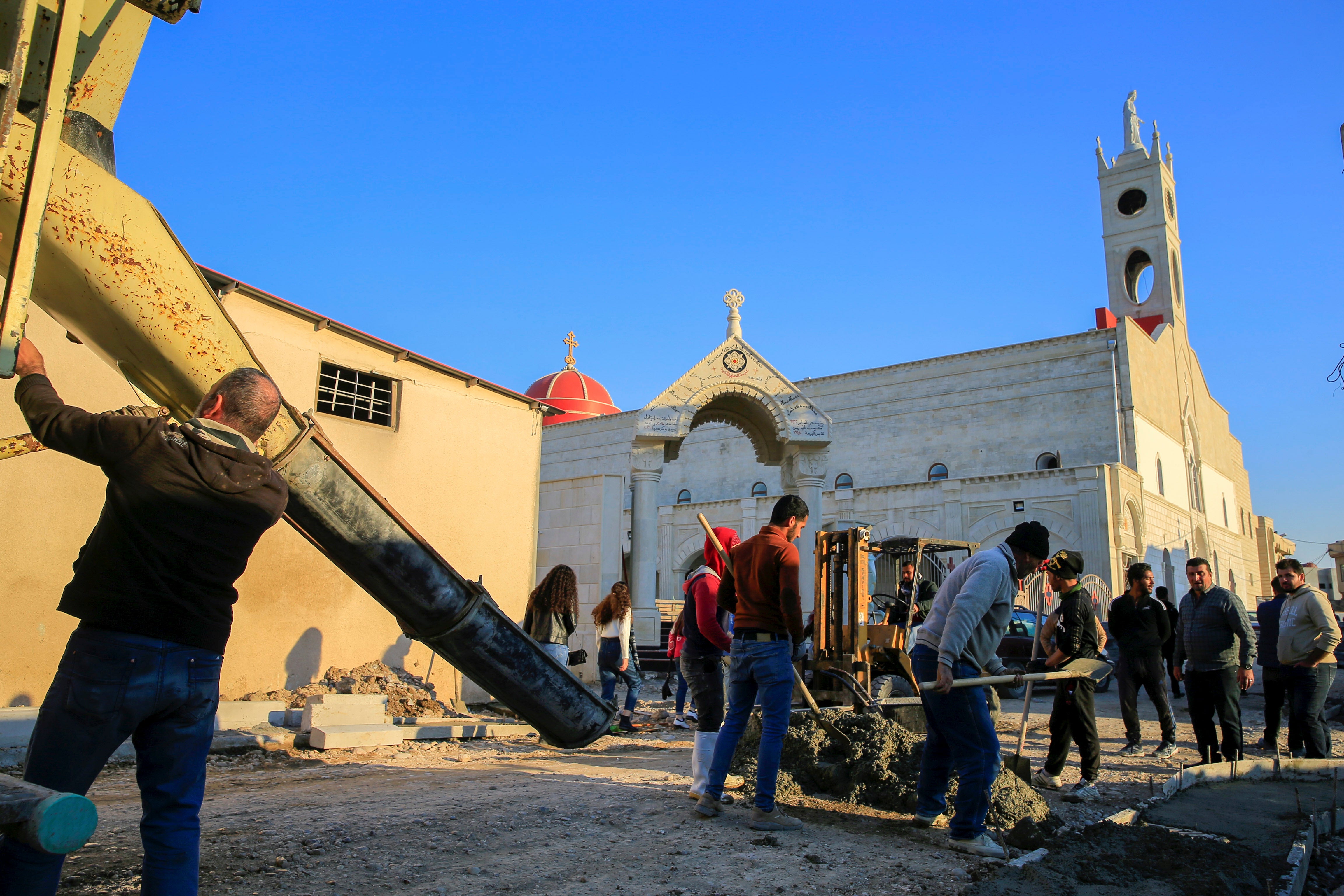
I met Father Jalal Yako, a Syriac Catholic priest, soon after he had been forced to flee for his life, along with 50,000 Iraqi Christians, from Isis fighters who had captured Mosul and much of northern Iraq in 2014. He sounded like a man filled with despair and with good reason. We were speaking in the Kurdish capital Erbil in front of a half-built mall, inside whose raw concrete interior 1,650 Christian refugees were trying to survive in the semi-darkness without electricity or water.
The refugees were all from the Syriac Catholic town of Qaraqosh on the Nineveh Plain outside Mosul where, until a few weeks earlier, they had lived a near normal life with their own houses, shops, churches, farms, tractors and cars. In the space of a few hours, they had lost everything to Isis and had barely escaped with their lives. About 150 of them, delayed by sick relatives or simply unlucky, were still in Qaraqosh where Isis gave them a choice between death and conversion to Islam. Muslims getting married in Mosul were invited by Isis to go to Qaraqosh to take their pick of furniture abandoned in Christian-owned houses.
Father Yako, who was born in Qaraqosh, told me of his own grim experiences and how he thought the Christians of Iraq should respond to this latest trauma. He must have been in a state of well-concealed shock, but what he said to me then remains highly relevant to the future of Christianity in Iraq today.
In the coming days, Pope Francis will hear many more optimistic views from Iraqi Christians about the direction they should take when he visits Iraq between 5 and 8 March, but what Father Yako said may be closer to their real feelings. The prospects for the visit going ahead – it has been threatened by an upsurge in Covid-19 infection – are a little uncertain, but, if it does, the Pope will spend time in Baghdad, Najaf, Nasiriyah and Mosul and he will also visit Qaraqosh. Some of its surviving inhabitants have returned and are painting over the fire-scorched walls of the main church with white paint. They will be hoping that he can do something to prevent the Christian community in Iraq from disappearing after 2,000 years.
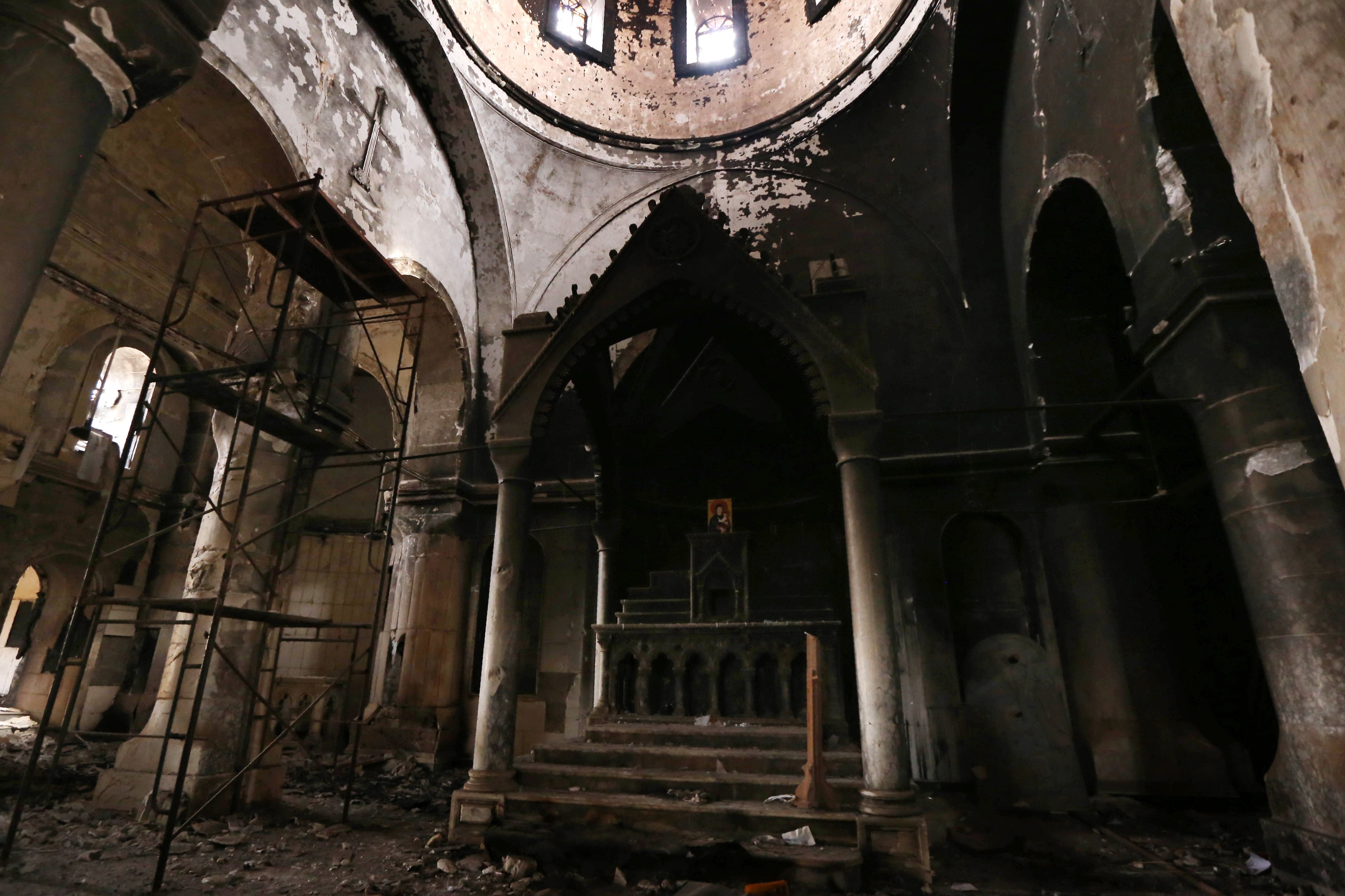
Father Yako had once been an advocate for Christians staying in Iraq. “I was in Italy for 18 years, and when I came back here my mission was to get Christians to stay here,” he says. “The Pope in Lebanon two years earlier had established a mission to get Christians in the Middle East to stay here.”
Their numbers had been depleted under Saddam Hussein, through emigration brought about by calamitous wars and harsh economic sanctions. After the US-led invasion of 2003, the number of Christians in Iraq fell even more sharply from one million to an estimated 250,000. Father Yako had laboured, as directed by Rome, to staunch this outflow by persuading people in Qaraqosh that they had a future in Iraq, and that they should not seek refuge in the US, France, Australia or anywhere else that would accept them. It was no easy task, since Christians – long before the rise of Isis – were being disproportionately targeted by killers, kidnappers and criminals.
But the Isis capture of Mosul and Qaraqosh had forced Father Yako to change his mind about the feasibility of Christians staying in Iraq. “Everything has changed since the coming of Daesh [the Arabic acronym for Islamic State],” he told me. “We should flee. There is nothing for us here.” He described how Isis fighters had captured Qaraqosh on 7 August, forcing the mass flight of the overwhelmingly Christian town’s 46,000 inhabitants who had no time to take anything with them.
Isis has since been defeated and driven from Qaraqosh, Mosul and the Nineveh Plain, though it still makes sporadic guerrilla attacks and occasional suicide bombing
Some of the refugees had suffered worse things than the loss of material possessions. On the third floor of the Erbil shopping mall down a dark corridor lined with prefabricated cabins provided by the UN High Commission for Refugees, I talked to Aida Hanna Noeh, 43, and her blind husband Khader Azou Abada. He had been too ill to be taken out of Qaraqosh by Aida, along with their three children, in the final hours before the town fell to Isis. The family stayed in their house for many days, and then Isis told them to assemble with others to be taken by mini-buses to Erbil.
As they entered the buses, the jihadis stripped them of any remaining money, jewellery and documents. Aida was holding her three-and-a-half-year-old daughter, Christina, when the little girl was seized by a burly Isis fighter who took her away. When Aida ran after him, he told her to get back on the bus or he would kill her. She had not seen her daughter since.
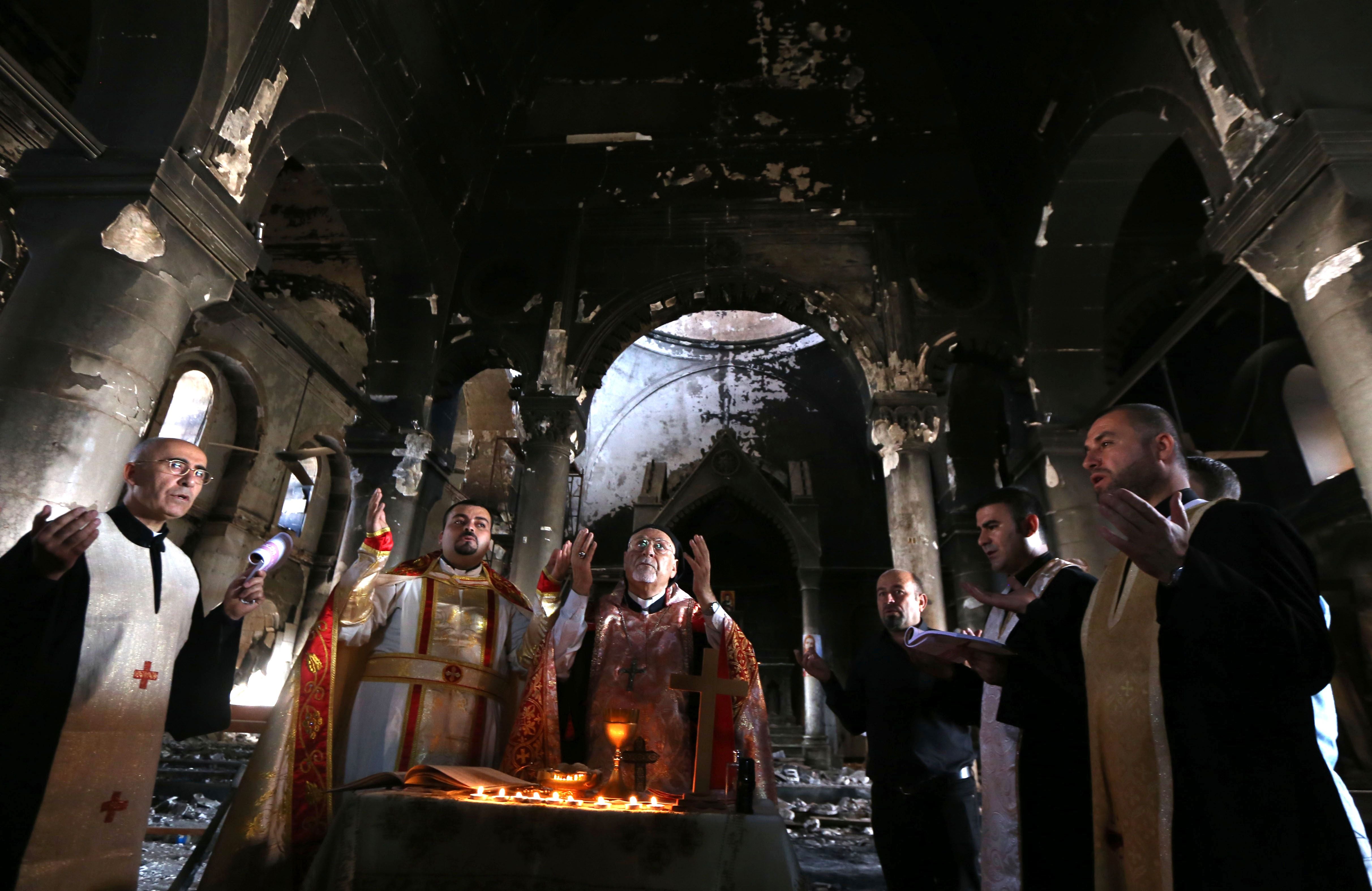
It was not only the savage violence of Isis that had led Father Yako unwillingly to the conclusion that his mission, sanctioned by the papacy though it was, had been a mistake. He pointed to the failure of both the Iraqi government and the Kurdistan Regional Government (KRG) to defend the Christians against the jihadis.
Outside Baghdad, the Christians have been traditionally concentrated in northern Iraq in Mosul and the Nineveh Plain to the east of the city. But when Isis fighters had attacked Mosul in June 2014, the Iraqi army had fled despite its superior number. When Isis assaulted Qaraqosh two months later, the Kurdish Peshmerga had similarly retreated in haste and without fighting – despite having reassured the town’s inhabitants that they would defend them to the end.
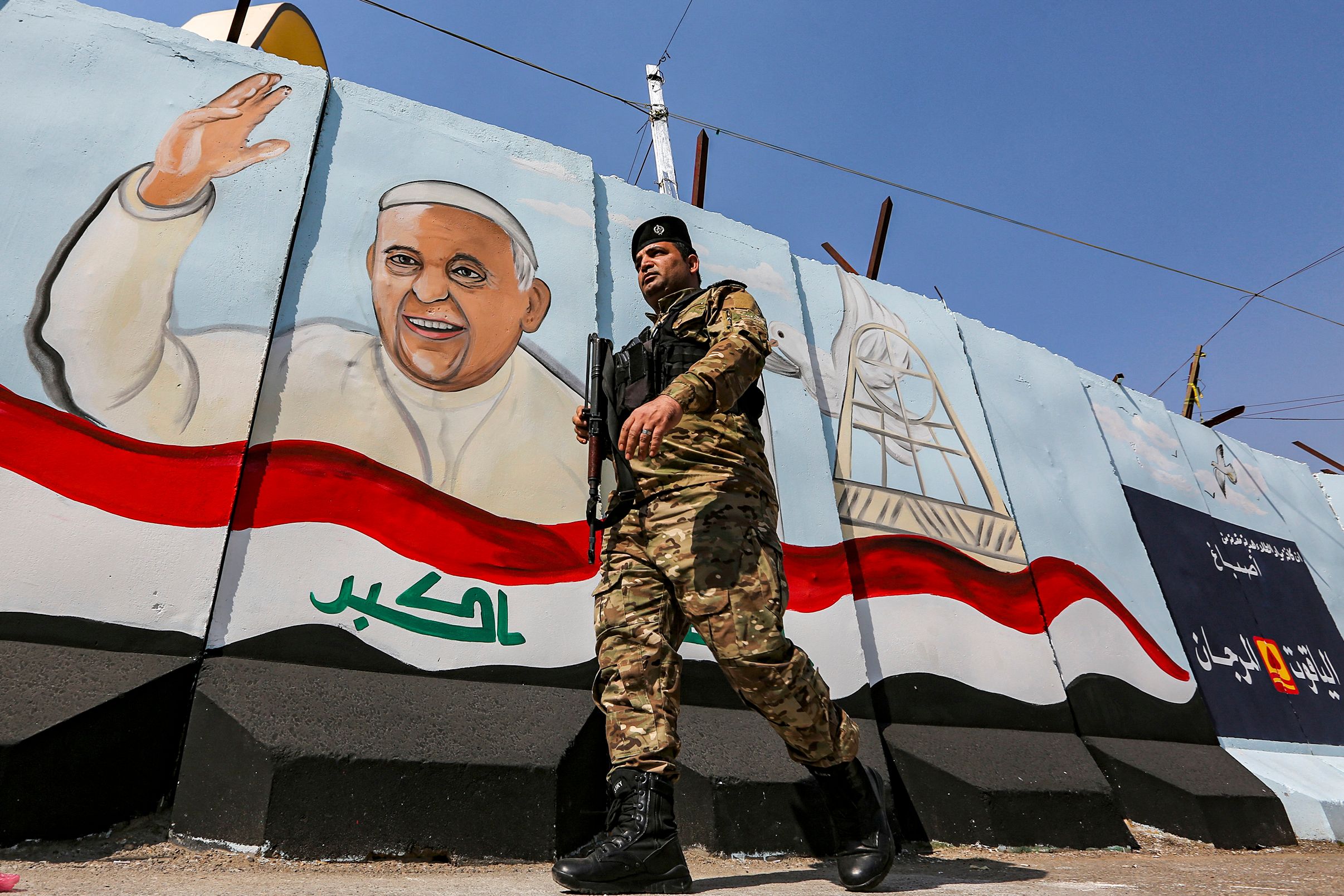
“They said that they would fight as hard for Qaraqosh as they would for Erbil,” said Father Yako bitterly. “But when the town was attacked, there was nobody to support us.” Such was the speed pf the Peshmerga’s retreat when a small Isis force appeared – just 10 vehicles filled with fighters according to eyewitnesses – that some Christians had no time to secure their passports and other essential documents.
Isis has since been defeated and driven from Qaraqosh, Mosul and the Nineveh Plain, though it still makes sporadic guerrilla attacks and occasional suicide bombing. Christians have once again received assurances of protection from the central government in Baghdad and the Kurdish authorities in Erbil. But after their abandonment in 2014, they have strong doubts about what these pledges of support are really worth. Christians may consider themselves Iraqis, but do non-Christian Iraqis accept them as such? And even if they do, has life for Christians in Iraq become too dangerous to be sustained? Before Isis, they had been repeatedly targeted by al Qaeda in Iraq. The culminating atrocity was al Qaeda’s seizure of a church in Baghdad in 2010, where its gunmen and suicide bombers took captive and later slaughtered two priests and more than 50 members of the congregation.
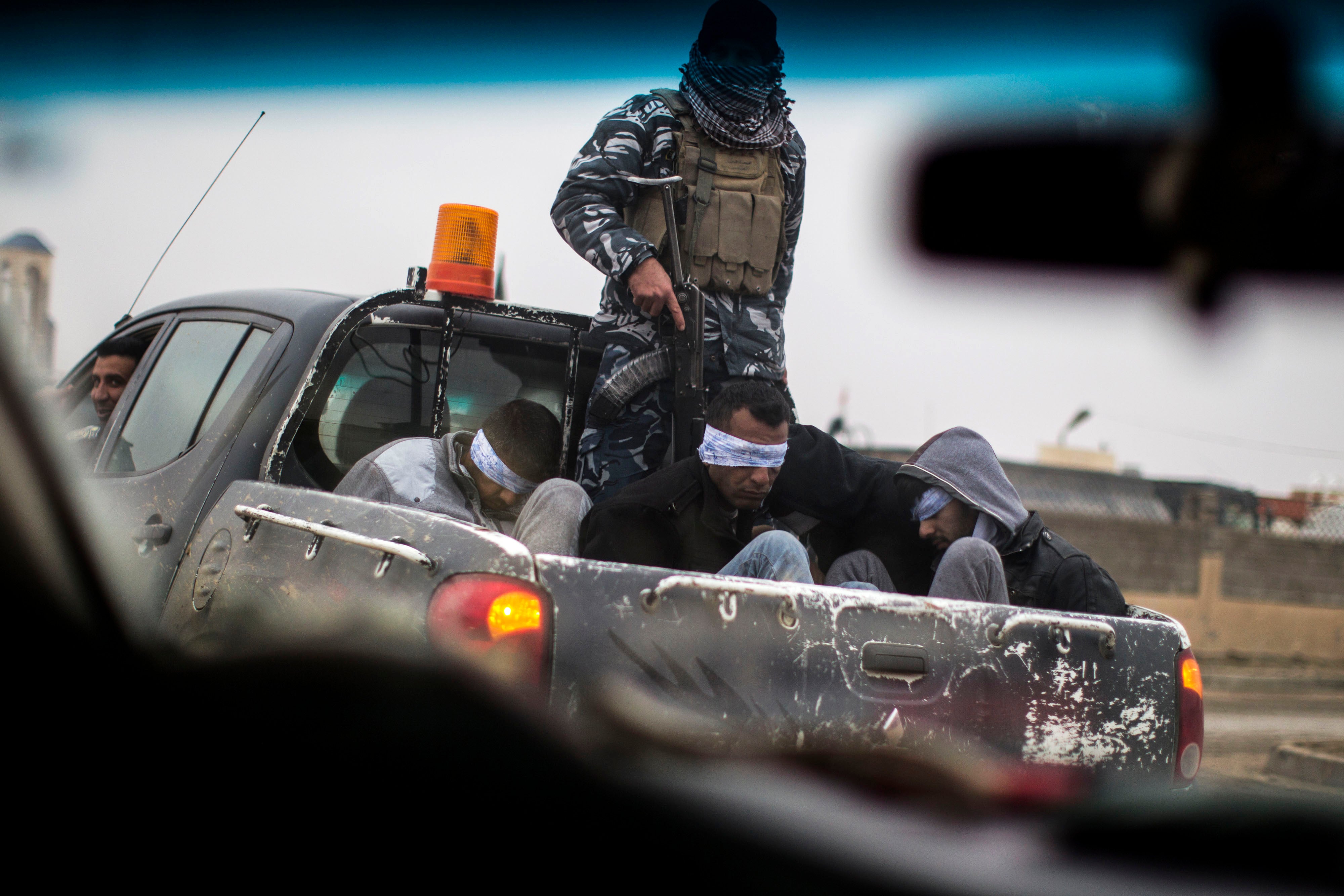
I visited Qaraqosh in 2016, two years after my conversation with Father Yako, after Isis had retreated into Mosul city, where it endured a nine-month siege that left a large part of the city in ruins. I discovered that Qaraqosh might be free but it was not easy or particularly safe to visit. The Nineveh Plain on which it stands is a mosaic of contending sects and militias. I was travelling with some of the town's leading citizens and we had to negotiate our way through uncooperative Kurdish Peshmerga checkpoints and then go through the same process with checkpoints held by Shia militias – some local and some from southern Iraq – as well as the Iraqi army. On both sides of the road were empty burned-out villages, proof that it was not only Christians who had been driven from their homes.
Arriving in Qaraqosh – which the Pope is to visit at the end of this week - I went to the half-burned church of St Mary al-Tahira, where several dozen Syriac Catholics were holding a mass in Aramaic amid the wreckage left by Isis. The upper part of the stone columns and the nave were scorched black by fire and the only artificial light came from three or four candles flickering on an improvised altar. Isis fighters had used the courtyard outside the church as a firing range and the metal targets set up at one end of it were riddled with bullets.
Security may have improved but Iraq is being hit by an unprecedented economic disaster, with oil revenues providing only half what is needed to pay for salaries and pensions
In his sermon after the mass, the Syriac Catholic Bishop of Baghdad, Yusuf Abba, called for the congregation to show cooperation and goodwill to all. But such sentiments are in short supply in Iraq where every community is eloquent about its own sufferings and dismissive of the sufferings of others. Qaraqosh had survived physically but only just. Isis had set fire to many houses in the town before leaving and, long before that they had looted their furniture, cookers and fridges. Many could be made habitable again after extensive repairs, but they would lack water and electricity.
Isis had not fought for Qaraqosh, so at least there were no booby traps or improvised explosive devices as in other recaptured towns. Isis had evidently considered fighting for Qaraqosh because their fighters had dug networks of tunnels under a nearby Christian village, but they must have changed their minds. The only sign of resistance was the heaps of burned-out tyres intended to create a smoke haze to hamper visibility for US bombers overhead. Air attacks had been few, but, where they had occurred, whole buildings were reduced to piles of rubble.
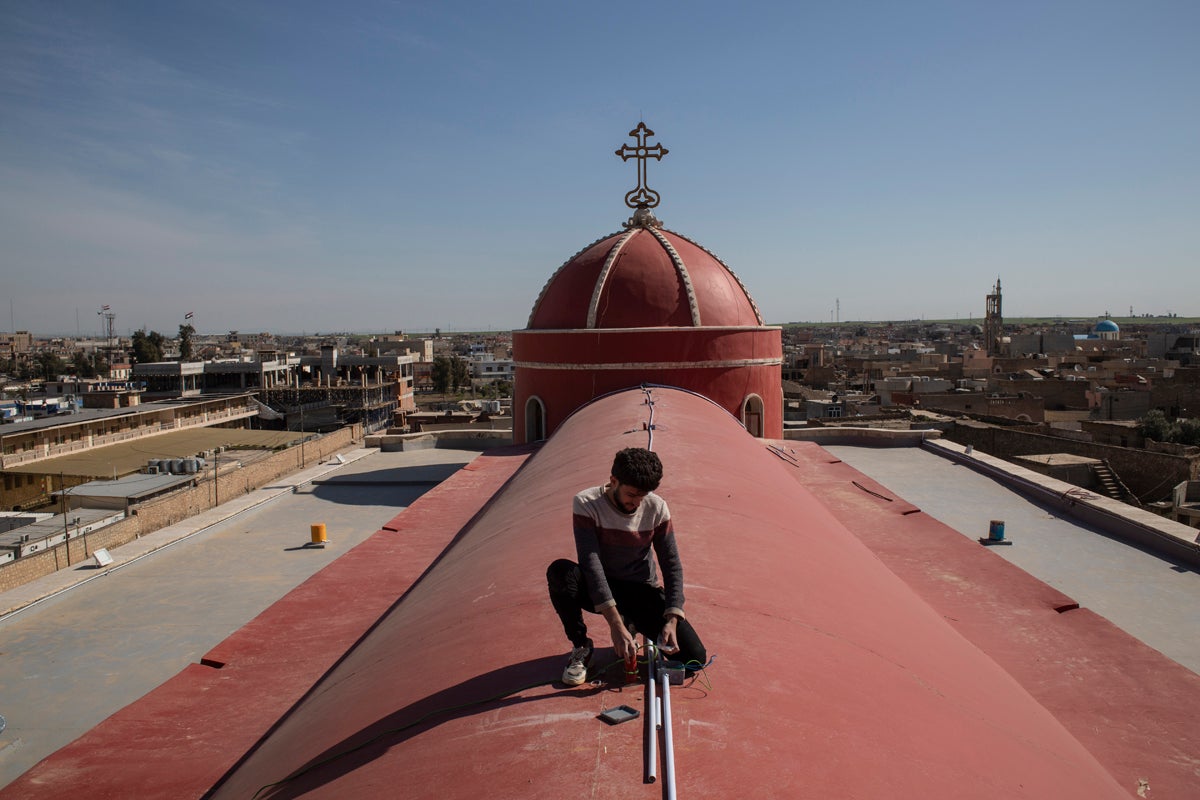
Pope Francis will see a spruced-up Qaraqosh and the threat of violence against Christians in Iraq is less than it was five years ago. Many of the houses in Qaraqosh have been repaired and some of the original population has returned, though there are few jobs. But the comparison between today and five years ago is scarcely reassuring given how bad things were then, and not just for Christians but for 40 million Iraqis. Security may have improved but Iraq is being hit by an unprecedented economic disaster, with oil revenues providing only half what is needed to pay for salaries and pensions. Covid-19 is rampant, but that is but one of many crises besetting Iraq.
Non-Christian Iraqis become irritated by what they deem to be the excessive international sympathy for the small Christian community and not enough sympathy for the rest of the population. Muslim Iraqis often have an exaggerated idea of the funding from abroad that the Christian community receives. A more valid cause for envy is that it easier for Christians to emigrate to a western country because of their religion than it is for an Iraqi Muslim. When I visited Qaraqosh in 2016, 40 per cent of its former population had already left Iraq and others were said to be waiting to sell their houses before emigrating.
Yet a core of Iraqi Christians – their morale strengthened by the Pope’s visit – will stay on in Mosul, Qaraqosh and Baghdad, tending the ancient churches and monasteries. The Pope will see the Shia spiritual leader Ali al-Sistani in the holy city of Najaf and visit Ur, the birthplace of Abraham, outside the southern city of Nasiriya. The Iraqi government will be glad to see him because a papal visit does something to push Iraq – and the problems facing all Iraqis and not just Christians – back on to the international agenda. It is true that Christians are under threat in Iraq – but then so is everybody else.

Join our commenting forum
Join thought-provoking conversations, follow other Independent readers and see their replies
Comments